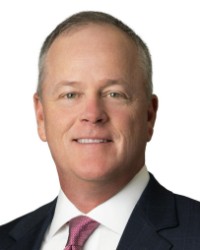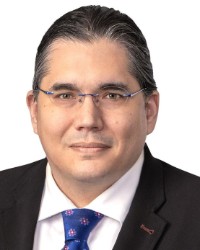Gaming Law 2025 Comparisons
Contributed By Jones Walker LLP
Law and Practice
1. Introduction
1.1 Current Outlook and Recent Changes
Florida’s gambling landscape is defined by two pillars: the 2016 voter control amendment (Article X, Section 30 of the state constitution) and the 2021 Seminole Compact. As such, any significant activity in the industry must be compliant with the terms of one or both of these defining instruments. As a result, the only significant recent changes have been through the Seminole Tribe’s expansion of its online sports wagering offerings.
The Florida Gaming Control Commission continues efforts to restrict illegal gambling, and its current focus appears to be on grey-market slot-machine businesses.
2. Jurisdictional Overview
2.1 Online Gambling
Online gambling, other than sports wagering offered by the Seminole Tribe pursuant to the 2021 Seminole Compact, is prohibited. Online lotteries are not authorised in Florida.
2.2 Land-Based Gambling
Sports betting is generally unlawful in Florida, except for bets made pursuant to the exception set forth in the 2021 Seminole Compact.
Poker is regulated by the Florida Gaming Control Commission and offered at licensed cardrooms throughout the state. Penny-ante card games are permissible if conducted pursuant to Section 849.085, Florida Statutes.
Bingo is regulated by the Commission and must be conducted in the manner set forth in Section 849.0931, Florida Statutes.
Slot-machine gaming is authorised only at certain facilities in Dade and Broward Counties and regulated by the Commission. The Seminole Tribe operates land-based casinos located on tribal land pursuant to the 2021 Seminole Compact.
The Florida Lottery is operated and regulated by the Florida Department of the Lottery pursuant to Chapter 24, Florida Statutes.
3. Legislative Framework
3.1 Key Legislation
Chapter 849, Florida Statutes, sets forth the general framework prohibiting gambling in Florida. Chapters 550 and 551, Florida Statutes, set forth the framework for legal pari-mutuel wagering and slot-machine gaming on non-tribal land.
Chapter 24, Florida Statutes, sets forth the conduct and regulation of the Florida Lottery.
The 2021 Seminole Compact is the current authorised and approved gaming compact between the Seminole Tribe of Florida and the state.
3.2 Definition of Gambling
“Gambling” is generally defined in Section 849.08, Florida Statutes, as playing or engaging in any game of chance by any device whatsoever for money or any other thing of value.
3.3 Definition of Land-Based Gambling
Florida does not distinguish between land-based and online gambling.
3.4 Definition of Online Gambling
Florida does not distinguish between land-based and online gambling.
3.5 Key Offences
The key offences that can be committed are covered in the Florida Statues as follows:
- Section 849.01, Florida Statutes – maintaining a location where illegal gambling takes place;
- Section 849.08, Florida Statutes – engaging in unlawful gambling;
- Section 849.09, Florida Statutes – conducting an unlawful lottery;
- Section 849.14, Florida Statutes – unlawfully wagering on a trial of skill or contest;
- Section 849.15, Florida Statutes – unlawful manufacturing, sale or possession of a slot machine or device;
- Section 849.25, Florida Statutes – unlawful bookmaking; and
- Sections 24.116–.119, Florida Statutes – violations against the Florida Lottery system.
3.6 Penalties for Unlawful Gambling
Offences in Chapter 849, Florida Statutes, are generally categorised as misdemeanours, carrying a maximum sentence of 60 days in prison and related fines.
Certain fraudulent activities, such as counterfeiting or altering lottery tickets, are classified as felonies of the third degree, carrying a maximum sentence of five years in prison.
4. Licensing and Regulatory Framework
4.1 Regulatory Authority
The Florida Gaming Control Commission regulates non-tribal gaming in Florida and is the state oversight agency with regard to the 2021 Seminole Compact.
The Florida Department of the Lottery oversees the conduct and regulation of the Florida Lottery.
4.2 Regulatory Approach
The Florida Gaming Control Commission and the Florida Department of the Lottery regulate primarily on a combination of prescriptive inspections of facilities and response to complaints initiated by the industry or the general public.
4.3 Types of Licences
The general types of licences available for businesses are pari-mutuel, cardroom and slot-machine business licences. Combination licences are available.
4.4 Availability of Licences
Licences to create new facilities are restricted by statutory distance requirements, constitutional prohibitions against the expansion of gaming and local option election requirements. However, current licences are available for purchase and/or transfer pursuant to all other operational requirements being fulfilled by the entity seeking to be licensed.
4.5 Duration of Licences
Licenses generally renew annually or every three years at the choice of the applicant.
4.6 Application Requirements
Generally, applicants and their officers/directors/qualifying shareholders may not be convicted of felonies or certain other offences, nor may persons employed by or performing functions on behalf of the Commission or the Department have an interest in or business relationship with applicants. Other specific requirements exist depending on the type of licence sought.
4.7 Application Timing
Review of an application can range from one week to six months or longer, depending on the type of application (new or renewal), whether fingerprinting was necessary, and whether and what type of deficiencies were identified by the Commission in the application.
4.8 Application Fees
Fees vary depending on the licence type. Pari-mutuel activity is licensed on a daily basis depending on the activity conducted. Cardrooms are assessed annually at USD1,000 per table. Slot facilities are subject to an initial USD3 million application fee.
4.9 Ongoing Annual Fees
Slot-machine businesses are assessed annually for a USD2 million licence fee. Slot-machine facilities must also pay an annual regulatory fee of USD250,000 to the Commission for the compulsive or addictive gambling prevention programme, and are obligated to have agreements in place with applicable Florida horseracing associations regarding purse payments.
4.10 Personal Licensing
The personal licence types available are as follows.
- Pari-mutuel business and occupational:
- professional; and
- general.
- Card room business and occupational:
- employee; and
- business/officer/director/shareholder.
- Slot-machine business and occupational:
- general;
- business employee; and
- business/officer/director/shareholder.
Combination licences are also available, and the timescale for these applications is similar to those set forth in the business section. Applicants are subject to the same character and financial requirements set forth in Chapters 550 and 551, Florida Statutes, as other businesses. Fees range annually from USD50 to USD3,000.
5. Land-Based Gambling
5.1 Premises Licensing
Premises are subject to mileage requirements, and the officer/director/shareholders are required to be disclosed and licensed subject to the same requirements as set forth in the individual applications.
6. Online Gambling
6.1 B2C Licences
Online gambling is prohibited in Florida, and cashless wagering at slot facilities is currently in the rule-making process with the Commission. Online sports wagering is conducted pursuant to the 2021 Seminole Compact.
6.2 B2B Licences (Suppliers, Software, Etc)
There is no applicable information in this jurisdiction.
6.3 Affiliates
There is no applicable information in this jurisdiction.
6.4 White Labels
There is no applicable information in this jurisdiction.
6.5 Technical Measures
There is no applicable information in this jurisdiction.
7. Responsible Gambling (RG), Also Known as Safer Gambling (SG)
7.1 RG Requirements
Section 551.118 sets forth the requirements for operators and the Commission for the establishment of a compulsive or addictive gambling programme.
7.2 Gambling Management Tools
Florida’s “Dedicated Problem Gambling Helpline” is 1 833 PLAYWISE, 1 833 752 99473. The organisation also maintains a website.
8. Anti-Money Laundering (AML)
8.1 AML Legislation
Florida has no laws that supersede the US federal government’s AML laws and requirements.
8.2 AML Requirements
The gaming industry is subject to the same requirements as imposed at the federal level.
9. Advertising
9.1 Regulatory/Supervisory Agency
The main regulatory agency is the Florida Gaming Control Commission.
9.2 Definition of Advertising
There is no official definition of gaming advertising in Florida.
9.3 Key Legal, Regulatory and Licensing Provisions
There are no gaming-specific legal, regulatory and licensing provisions in Florida.
9.4 Restrictions on Advertising
There is no legislation or guidance specific to gaming, civil enforcement of unauthorised use of agency trade marks or unauthorised/improper misrepresentation of agency approval or partnerships.
9.5 Sanctions/Penalties
There are no sanctions/penalties for infringing advertising regulations specific to gaming, but civil penalties for trade mark or copyright infringement may apply.
10. Acquisitions and Changes of Control
10.1 Disclosure Requirements
Transfer or control of a licence, a change of officer or director, or a change to applicable 5%/10% shareholders will require the submission of a new application and may trigger fingerprinting requirements if the person or entity triggering the disclosure is not currently licensed by the Commission.
10.2 Change of Corporate Control Triggers
Any of the changes to corporate control described in 10.1 Disclosure Requirements will trigger the need for an updated or new application.
10.3 Passive Investor Requirements
The requirements for passive investors in acquisitions or changes of control are 5% ownership in a slot-machine facility and 10% ownership in other facilities.
11. Enforcement
11.1 Powers
The regulatory bodies can exercise all of the regulatory and executive powers of the state with respect to gambling, and ensure that the laws of Florida are not interpreted in any manner that expands the activities authorised in Chapter 24, Part II of Chapter 285, Chapter 546, Chapter 550, Chapter 551 or Chapter 849. The Division of Gaming Enforcement is treated as a state-wide criminal justice agency pursuant to Section 943.045, Florida Statutes.
11.2 Sanctions
Sanctions are enforced through an administrative process subject to Florida’s Administrative Procedure Act. Criminal violations are tried through the criminal court system.
11.3 Financial Penalties
Penalties are assessed on a case-by-case basis subject to statutory limits.
12. Tax
12.1 Tax Rate by Sector
Pari-mutuel activity taxation is based on a percentage of wagering handle, cardroom activity is based on a percentage of table gross receipts, and slot-machine gaming is based on a percentage of gross gaming revenue and compared to the amount of tax paid during FY 2008–09 (eg, the tax on slot-machine revenue is 35%, but subject to additional considerations and adjustments).
The general rates, credits and exclusions from taxation depend on the type of licence held by the operator, and typically also on where in the state the activity is occurring.
Jones Walker LLP
Suite 1200
106 East College Ave
Tallahassee
FL 32301
USA
+1 850 214 5100
+1 850 214 5150
mdunbar@joneswalker.com www.joneswalker.com


